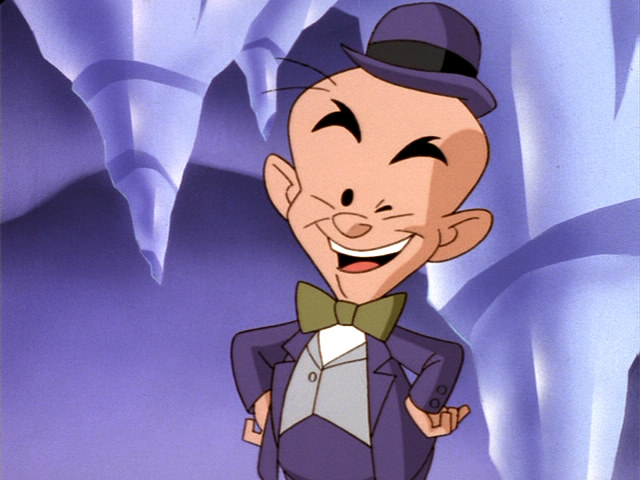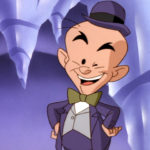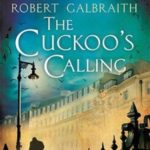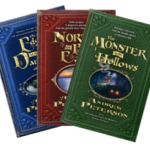What’s In A Name?
“Call me Ishmael.”
A name is like the cover of a book. For better or worse, it tints our first impression of a person–would you be drawn into the pursuit of the Great White Whale by a guy named Poindexter? Names can also powerfully shape our self-perception. If I ask who you are, you’ll likely respond with your name, and you won’t be happy if I get it wrong on our next meeting. Our names may carry a deeper meaning in their etymology that influences our behavior–if I know that Fred is derived from a Germanic word that means “peaceful,” it might subconsciously make me less combative. Or not. Names connect us to our family trees, and our parents often reinforce that by selecting a first or middle name in honor of a beloved relative or ancestor, though it may unintentionally cool our affection for Great Uncle Jebeziah or Granny Gertrude later in life.
Pretty or not, names have power. Children assign nicknames to their peers denoting respect, shame, affection, ridicule, or fear. These tags can elevate or destroy social status in an instant. Some of them may follow a person their entire life–heaven help “Stinky.” Though Romeo declared, “That which we call a rose by any other name would smell as sweet,” we might be less inclined to sniff a “flatulentia.”
Many a story revolves around the idea that knowing a person’s true name grants a magical power to control them. Rumpelstiltskin, anyone? Mxyzptlk? Some names have a magic of their own and propel their bearers with the force of destiny: “Aragorn, son of Arathorn, heir of Isildur, King of Gondor.”
Most of us adopt a variety of names during the course of our lives. Some are official titles, others may be aliases, business names, pen names, pet names, nicknames, handles, hashtags, “hey you,” and so on. In some cases, our identities are as malleable as our names, and we adopt different personas to fit the demands of a given situation or our current mood. At times, one name isn’t enough to encompass the extent and complexity of a person, God being the foremost example. A quick skim of the Bible will yield hundreds of names for God, some of His own declaration, some springing from human attempts to comprehend and describe Him. “Wonderful, Counselor, The Mighty God, The Everlasting Father, The Prince of Peace”–that’s from a single verse in Isaiah. You get the idea.
An American soul singer and songwriter named Shirley Ellis even wrote a little ditty about names that rose to #3 on the U.S. music charts in 1965, and you’ll probably recognize it. She called it The Name Game:
Shirley!
Shirley, Shirley bo Birley Bonana fanna fo Firley
Fee fy mo Mirley, Shirley!Come on everybody!
I say now let’s play a game
I betcha I can make a rhyme out of anybody’s name
Please be careful about the names you plug into Shirley’s template. Your friends Chuck and Ruby may never forgive you. Just sayin’.
My wife and I spent months pondering names for each of our three children. Something strong, yet approachable. Significant, but not too weighty. A name that tumbled trippingly off the tongue, inspiring birdsong and heroic anthems. Memorable, but also impossible for playground comedians to convert into a hurtful label. Perhaps most important of all, nothing remotely connected to any of the little hellions my wife had the misfortune to babysit during her teenage years. I think we were mostly successful, though the ingenuity of playground comedians is not to be underestimated.
I have a similar struggle choosing names for the characters in my stories, and I’m rarely satisfied with my final selections. Some authors are simply brilliant at this, and we get wonderful, musical, emotionally-resonant names that go a long way toward creating a vivid image in our minds: Bilbo Baggins, Aslan, Aldus Dumbledore, Huckleberry Finn, David Copperfield. On the dark side, we find names like Smaug, Tash, Voldemort, Injun Joe, and Uriah Heep that clash and grind and leave a bad taste in our mouths.
What about you? Do you think character names are important? What are some of your favorites…or a few you wish you’d never heard?













































Oh, yes, character names are important! And it’s lots of fun looking through a Baby Name Book, and quite satisfying when you find the right one.
And it’s funny, there are some names I wouldn’t like on their own, but I do like those names because of the characters who bear them. “Pauline” sounds stuffy, until I remember the wise, good hearted young lady from The Island Queen. And had I comes across the name “Eustace” before reading The Voyage of the Dawn Treader, I would have thought it weird.
As for favorite character names…Taran from The Prydain Chronicles; Ilohan from The Epic of Karolan; Conan from The Red Keep; Scheherazade from The Arabian Nights. Tolkien’s names go without saying. 🙂 I like these names because of the way they sound, either strong or intricate, or flowing.
This is a great and important topic to discuss. Thanks for posting!
Blessings,
Literaturelady
I like names that flow off the tongue, weird as they may be. Tolkien’s characters were strange, yet pronounceable, like Bilbo or Faramir. One of my favorite fantasy names is Chrestomanci, and all the poshness that goes with it. Conrad Tesdinic of Conrad’s Fate is a perfect fit for the character. Or how about Sirius Black from Harry Potter?
In the TV show Grimm, one of the main characters is essentially a reformed werewolf named Monroe. No last name, just Monroe. And it fits him perfectly, because he’s a somewhat neurotic hermit who enjoys solitary pursuits like clock repair and playing the cello.
In a videogame I’ve been playing, the bad guy is called Mephiles, a shortened version of Mephistopheles from Faust. And he’s a demon, of course. It fits him perfectly.
In Hebrew thought, a name is intimately associated with the breath of life. God is said to whisper a name to a soul and thereby breathe life into an unborn child. This concept relates one of the words for breath/wind back to its root: name.
Thus Shakespeare’s statement is at best a trivialisation of the ancient concept of names embodying both identity and destiny and at worst an outright denial of the idea. (I’m not sure he wasn’t being ironic at that point.)
Names are a passion of mine. I’ve been researching them for years, wondering if Shakespeare is right or the Hebrews were. Intriguingly, one of the major areas of research has turned out to be the names of characters in fantasy – and their connection to the name of the author. (Lewis from lion etc)
If you drop on by my blog (www.fire-of-roses.com/wp) and subscribe and make a comment – this week only – you’ll be in the running for a copy of the second edition of God’s Poetry – The Identity and Destiny Encoded in Your Name. (First edition was a finalist last year in the International Book Awards.) An entire chapter – and there’s only 5 of them – is devoted to names in fantasy and why they are deeply and powerfully and intimately connected the the author’s name.
My all-time favorite name is Edmond Dantès. It rolls off the tongue, and evokes the exotic mixed with adventure. Besides, Edmond is my favorite Pevensie.
Frankly, I find names are some of the hardest things, and I often give characters a working name that will change multiple times before the end.
I happen to love the name John. I’m afraid to use it on a character in case it makes him sound boring.
And don’t underestimate the use of alias, both as a way of showing a person’s character and perception and to obscure it. The end of the last series of Doctor Who turned the title into the First Question….not to mention River’s speech in A Good Man Goes to War:
“Doctor: the word for healer and wise man throughout the universe. We get that word from you, you know. But if you carry on the way you are, what might that word come to mean? To the people of the Gamma Forests, the word “doctor” means “mighty warrior”.